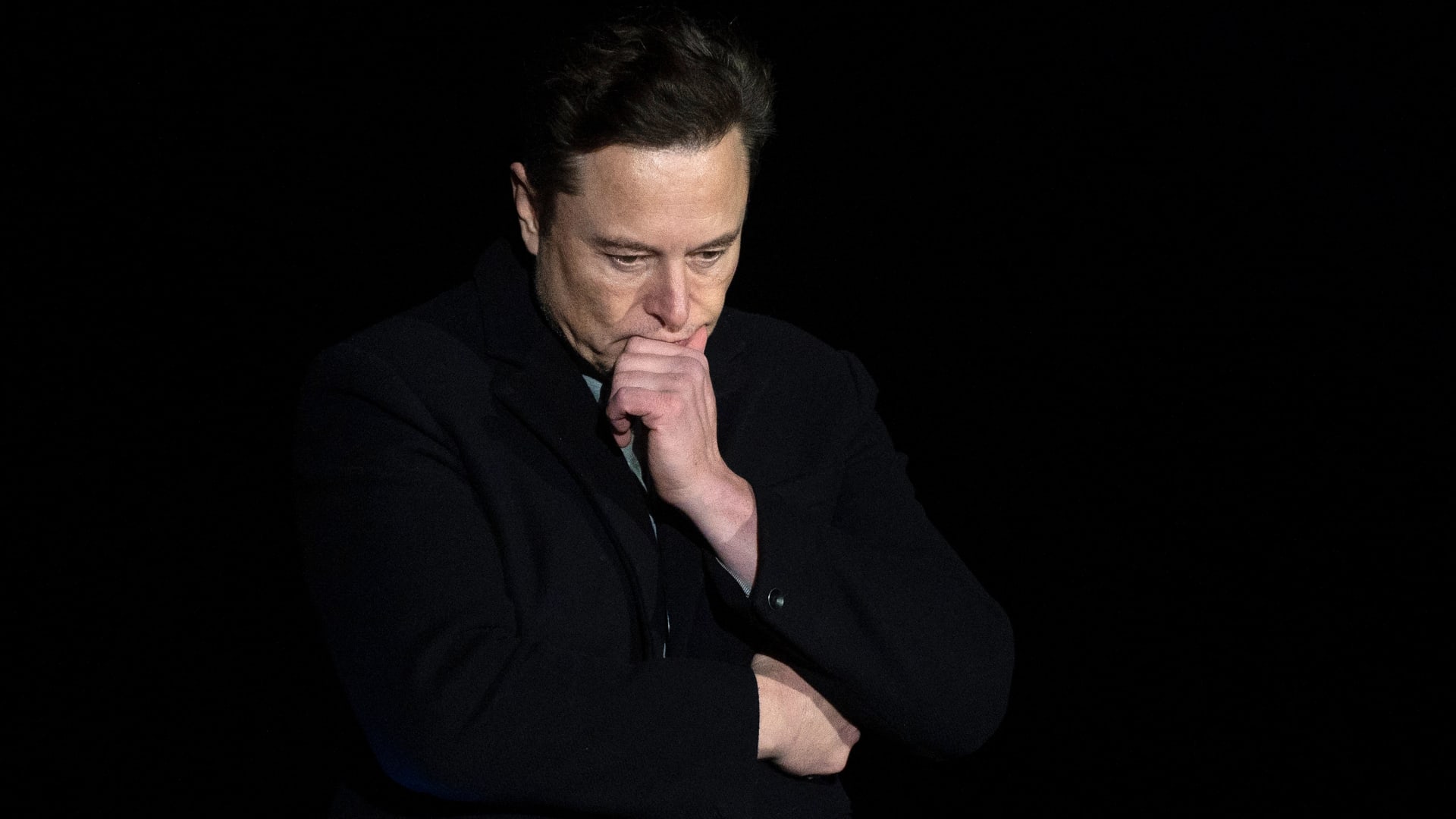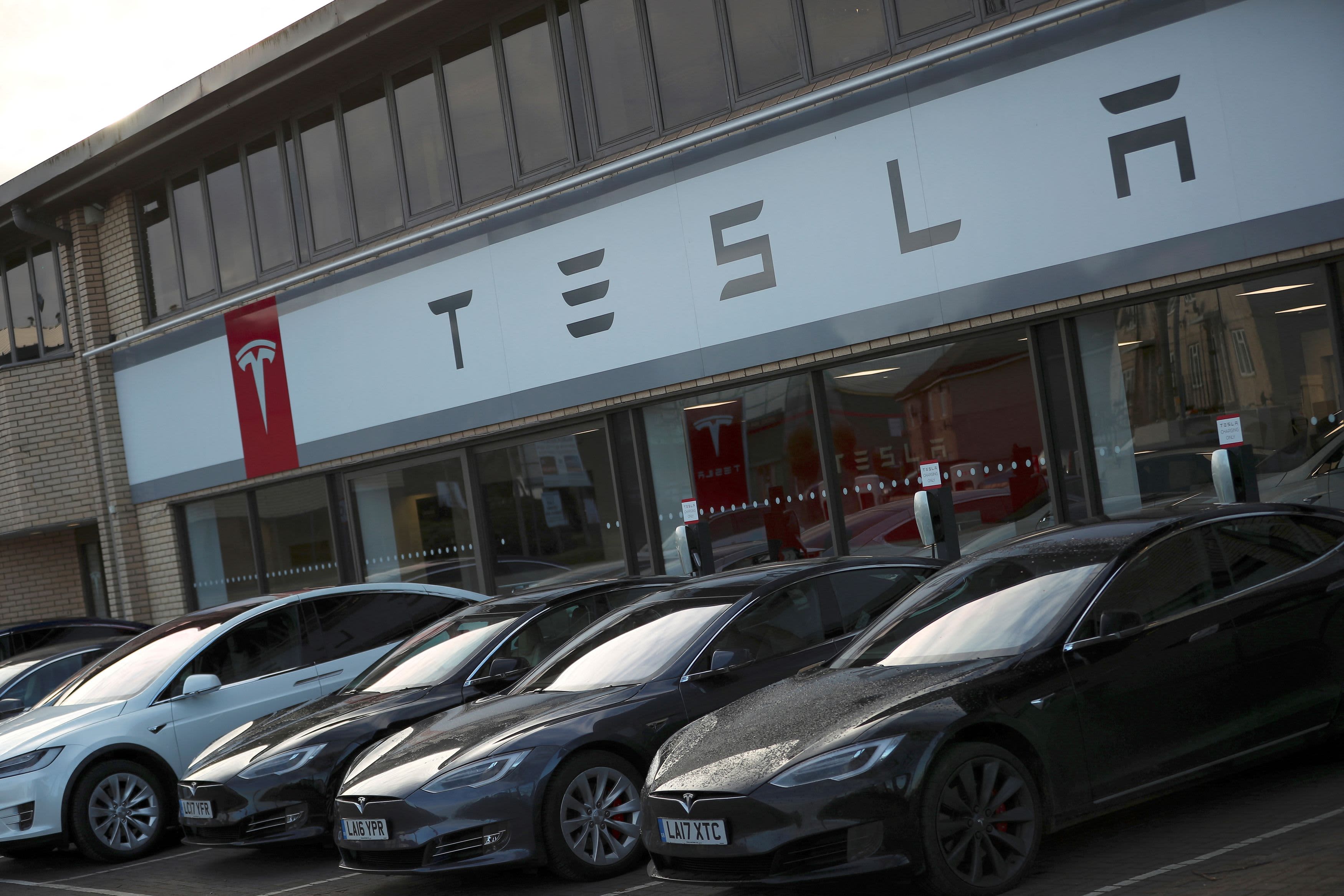Shares of Tesla closed down more than 8% Monday after the electric vehicle maker released third-quarter production and delivery numbers on Sunday that fell short of analysts’ estimates.
Tesla reported 343,000 total deliveries and 365,000 vehicles produced during the quarter, which missed analysts’ expectations of 364,660 vehicles delivered, according to estimates compiled by FactSet-owned Street Account. Deliveries are the closest approximation of sales reported by Tesla.
related investing news
Total production increased from the prior quarter of 2022, when the company said it made 258,580 cars. Tesla produced 19,935 of its more expensive Model S and X vehicles, and 345,988 of its more popular Model 3 and Y vehicles during Q3, according to its report.
Tesla faced growing pains at its new factories in Germany and Texas, executive turnover and soaring commodity prices in the third quarter of 2022.
Tesla’s AI Day on Friday also did little to boost the company’s short-term prospects. While bullish analysts saw the Tesla Bot as a project with potential, some AI and robotics industry insiders scoffed at the early prototype, price, and timeline Musk and Tesla employees presented on Friday. AI and robotics industry insiders were mostly skeptical. NYU professor Gary Marcus, who previously founded Robust AI and Geometric Intelligence, called the Tesla robot demo at AI Day “sub-optimal.”
Wall Street analysts were divided over the electric vehicle maker’s report, and the sliding stock price suggests investors are worried about the delivery numbers.
A Goldman Sachs analyst maintained Tesla’s buy rating and said the company will continue to benefit from the long-term shift to electric vehicles, while a JPMorgan analyst kept an underweight rating on Tesla, saying that the earnings miss was in line with the firm’s expectations.
Cowen’s Managing Director for Energy, Sustainability and Mobility Tech, Jeffrey Osborne, wrote in a note following the Q3 deliveries report, “Tesla has ample cash and has undertaken a meaningful global manufacturing expansion with facilities in China, Berlin, and Austin, TX with the latter two approaching full ramp. While competition in the EV space continues to heat up, Tesla’s focus on electrical efficiency and investment in battery technology likely makes them tough to chase in the short term.” Cowen has a “market perform” rating on shares of Tesla and a price target of $244 per share.
AB Bernstein senior research analyst Toni Sacconaghi wrote in a note following the deliveries report, that he thinks Tesla’s ability to hit its guidance range of 50% deliveries growth for the fiscal year of 2022 now seems “unlikely.” He wrote, “Tesla attributed its shortfall in delivered units to increased cars in transit at the end of Q3, and challenges securing vehicle transportation capacity and at a reasonable cost,” but he noted that vehicle production lagged what analysts’ were expecting, according to his firm’s estimates.
Nonetheless, the firm expects the company’s margins to look good for the second half of the year.
Bernstein has an “underperform” rating on shares of Tesla and a price target of $150 per share.
Deutsche Bank’s research analyst Emmanuel Rosner, was more bullish Tesla overall and wrote in a note that the firm sees potential for Tesla’s humanoid robot concept, nicknamed Optimus, even though it has only shown a “preliminary” first generation version at an AI Day recruiting event on Friday night last week. He also noted that Tesla continues to work on its self-driving technology and supercomputer named Dojo for artificial intelligence.
He wrote, “There remain numerous challenges in the performance of the system that the team is working on (such as lane selection and left turns), but it continues to progress well toward its goals of deploying to the entire N. American Tesla fleet by the end of the year.”
The firm is maintaining its price target of $400 per share, and views Tesla as “one of the most attractive stories in the autos sector.”
Tesla plans to report its third-quarter earnings on October 19, 2022.
— CNBC’s Michael Bloom contributed to this report.



